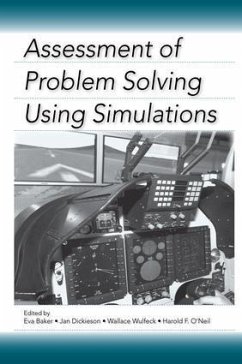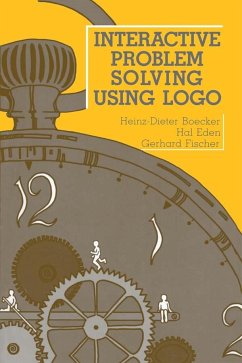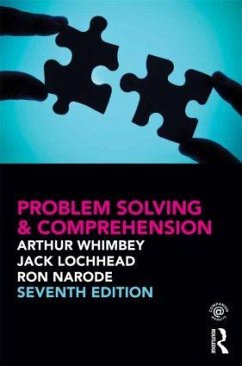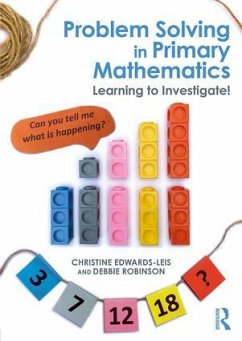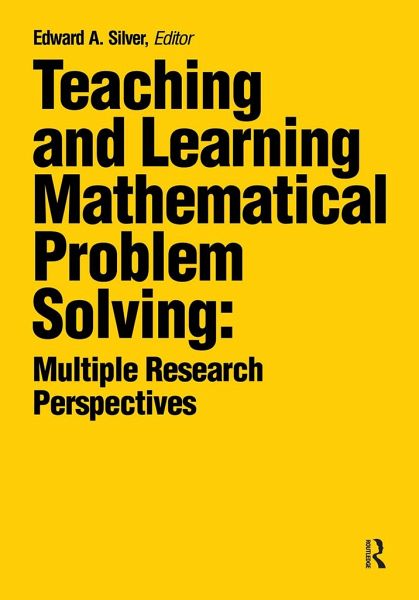
Teaching and Learning Mathematical Problem Solving
Multiple Research Perspectives
Herausgeber: Silver, Edward A.
Versandkostenfrei!
Versandfertig in 1-2 Wochen
111,99 €
inkl. MwSt.

PAYBACK Punkte
56 °P sammeln!
A provocative collection of papers containing comprehensive reviews of previous research, teaching techniques, and pointers for direction of future study. Provides both a comprehensive assessment of the latest research on mathematical problem solving, with special emphasis on its teaching, and an attempt to increase communication across the active disciplines in this area.






